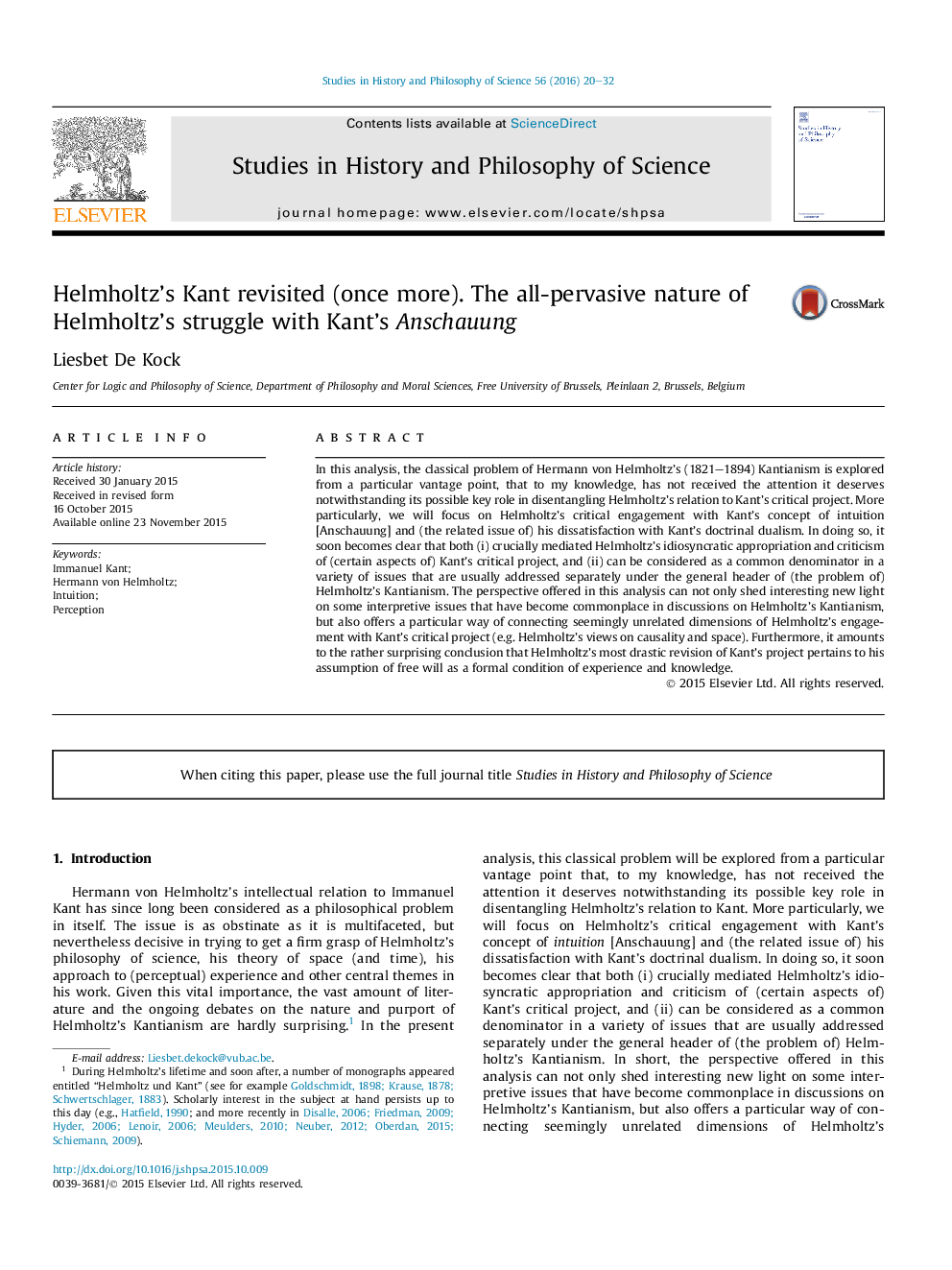| Article ID | Journal | Published Year | Pages | File Type |
|---|---|---|---|---|
| 7551643 | Studies in History and Philosophy of Science Part A | 2016 | 13 Pages |
Abstract
In this analysis, the classical problem of Hermann von Helmholtz's (1821-1894) Kantianism is explored from a particular vantage point, that to my knowledge, has not received the attention it deserves notwithstanding its possible key role in disentangling Helmholtz's relation to Kant's critical project. More particularly, we will focus on Helmholtz's critical engagement with Kant's concept of intuition [Anschauung] and (the related issue of) his dissatisfaction with Kant's doctrinal dualism. In doing so, it soon becomes clear that both (i) crucially mediated Helmholtz's idiosyncratic appropriation and criticism of (certain aspects of) Kant's critical project, and (ii) can be considered as a common denominator in a variety of issues that are usually addressed separately under the general header of (the problem of) Helmholtz's Kantianism. The perspective offered in this analysis can not only shed interesting new light on some interpretive issues that have become commonplace in discussions on Helmholtz's Kantianism, but also offers a particular way of connecting seemingly unrelated dimensions of Helmholtz's engagement with Kant's critical project (e.g. Helmholtz's views on causality and space). Furthermore, it amounts to the rather surprising conclusion that Helmholtz's most drastic revision of Kant's project pertains to his assumption of free will as a formal condition of experience and knowledge.
Keywords
Related Topics
Social Sciences and Humanities
Arts and Humanities
History
Authors
Liesbet De Kock,
